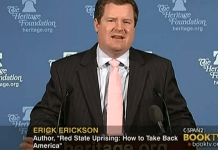Hendry County, situated among Florida’s economically disadvantaged regions, stands on the brink of a potential transformation with the development of the new “Airglades” airport, a $300 million cargo hub. This ambitious project is viewed by local leaders as a once-in-a-generation opportunity, promising to inject vitality into the largely agricultural community nestled at the edge of the Everglades. Projections suggest it could bring more than 1,400 new, high-skilled jobs to an area historically burdened by unemployment and poverty.
However, realizing this promise is not without its formidable challenges. The county faces stark educational realities: a significant portion of its working-age adults lack high-school diplomas, and nearly half of the population speaks a language other than English at home—a statistic among the highest in Florida. Before residents can capitalize on the anticipated jobs in engineering and manufacturing, foundational barriers such as earning GEDs and English proficiency must be overcome through targeted educational initiatives.
Michael Swindle, the county schools superintendent, reflects on the dichotomy of Hendry County’s natural beauty juxtaposed with its socioeconomic struggles: “We have some of God’s most beautiful country that has never been touched by man, yet by all the metrics you would judge a county on, we’re either No. 1 or No. 2 in the ugly categories.” This dual narrative underscores the urgency for comprehensive community efforts to bolster educational infrastructure and workforce readiness.
As the “Airglades” airport project navigates regulatory approvals, local stakeholders are mobilizing resources to address critical gaps in education and training. Community groups and schools are actively addressing teacher shortages and expanding adult education programs. However, these efforts are not immune to political headwinds, particularly concerning educational equity initiatives tailored to serve the county’s predominantly Black and Latino workforce. In Florida, political directives restrict programs that consider race or national origin, further complicating recruitment efforts for educators sensitive to these demographic needs.
Moreover, the transition of the county-owned airport to private ownership hinges on obtaining Federal Aviation Administration approval. This approval is contingent upon solidifying contracts with vendors in Latin America to demonstrate the airport’s potential as a hub for perishable goods—an essential component of its economic viability.
Amidst these challenges, the FutureMakers Coalition—a prominent community organization—has been pivotal in expanding adult education centers across southwest Florida, including in Hendry County. These centers have become vital hubs for adult learners, particularly Spanish-speaking residents in LaBelle, the county seat. Silvia Gullett, an instructor at one of these centers, has innovatively engaged students facing significant life challenges, such as balancing work and childcare responsibilities, to ensure they stay committed to their educational goals.
In Clewiston, another adult education center has seen enthusiastic participation from students pursuing industrial certifications in welding and other trades. Samantha Garza, 21, exemplifies the transformative potential of these programs. Initially trained in child care, Garza pivoted to welding after discovering a passion for hands-on work—a testament to the broadening career pathways these educational initiatives aim to facilitate.
Even before the “Airglades” airport breaks ground, local employers like U.S. Sugar are actively recruiting from these training programs to address immediate workforce needs. However, sustaining these efforts requires overcoming challenges such as teacher shortages in critical fields like welding and mechanics. Nathan Hollis, an industrial skills trainer at U.S. Sugar, highlights the success of their in-house training programs while acknowledging the ongoing struggle to find qualified instructors.
The county’s efforts to prepare for the airport’s economic impact extend beyond immediate workforce needs. Recognizing the broader educational deficits, Hendry County has launched targeted recruitment campaigns and utilized grants like the $23 million Good Jobs Challenge grant from the U.S. Department of Commerce to bolster teacher training and licensure programs. These initiatives aim not only to fill existing job vacancies but also to equip local schools with the capacity to educate future generations of professionals in fields ranging from aviation logistics to healthcare.
Yet, amidst these efforts lies uncertainty. The successful realization of the “Airglades” airport—and its potential to catalyze economic growth—remains contingent upon overcoming various logistical, educational, and political hurdles. As Superintendent Swindle reflects on his community’s aspirations and challenges, he remains cautiously optimistic: “We’re not just talking about an airport. We’re looking at this as an opportunity to move the needle on unemployment, on poverty, to a better place.”























